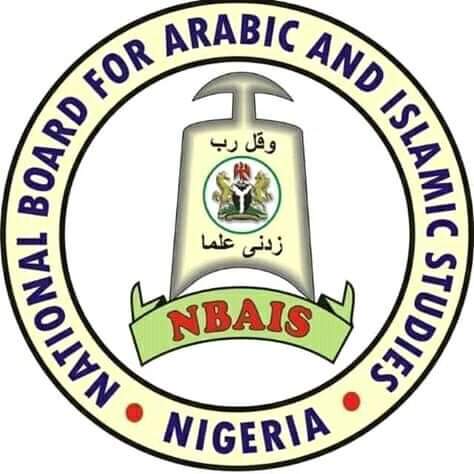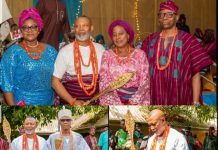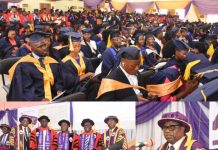
A 2-Day Stakeholders’ National Conference was organised by the National Board for Arabic and Islamic Studies (NBAIS) in collaboration with Al-Ansar Foundation at the National Mosque, Abuja from Monday July 12 to Tuesday 13, 2021 (2nd and 3rd Dhul Hijjah,1442). The theme of the conference was “Role of Arabic and Islamic Education in Advancing Peace and Harmony in Nigeria’’.
A total of 2,100 participants from institutions of higher learning and Qur’anic schools from all states of the federation attended the conference. Four commissioned papers were separately presented by Professor Afiz Oladosu, Dean of the Faculty of Arts, University of Ibadan; Professor Salisu Shehu, Vice Chancellor, Al-Istiqama University, Sumaila, Kano; Professor Bashir Galadanci, Dean of the School of Postgraduate Studies, Bayero University, Kano; and Dr. Muhammad Sani Idris, Honourable Commissioner for Education, Yobe State.
The Opening Ceremony which took place on Monday July 12, 2021 was attended by His Eminence, the Sultan of Sokoto and President-General of the Nigeria Supreme Council for Islamic Affairs, (NSCIA), Alhaji Muhammd Saad Abubakar, mni, CFR. Other dignitaries that graced the occasion include representatives of the Honourable Minister of Education, Malam Adamu Adamu; Honourable Minister of the Federal Capital Territory (FCT), Malam Muhammad Musa Bello; Speaker of the House of Representatives; and the Executive Governor of Gombe State, Alhaji Muhammadu Inuwa Yahaya.
Observations:
The conference observed as follows:
Religious teaching and values are founded on the principles of the universality of mankind and prohibition of all forms of discrimination on the basis of religion or ethnicity against fellow citizens.
A large section of the rural population in Nigeria has limited access to quality education, which has become a major cause of insecurity in the country.
Qur’anic schools are educational centres for inculcating sound moral values needed for mutual national integration and cohesion.
There are misconceptions and mis-information among Nigerians about the general utility of Arabic and Islamic Education in Qur’anic and Western schools.
Arabic and Islamic Education could be used to effectively achieve peace and harmony in Nigeria.
It has become imperative to regulate the operations of Almajiri/Tsangaya Schools in the country. In addition, the Conference also called for the review of the existing curriculum in these schools.
The non-passage of the Bill for the establishment of NBAIS is inhibiting the Board from realising the objectives for which it was established.
Recommendations:
The learning of religion should be made compulsory at all levels of Nigeria’s educational system including tertiary institutions.
Government should commit itself to providing equal access and opportunities to education for all Nigerians.
Government should support Qur’anic Schools/Centres and provide necessary interventions in terms of facilities including language laboratories. The interventions should also cover human resource needs of the schools.
NBAIS should be part of government decision-making process in regulating preaching activities in the country.
The Federal Ministry of Education is implored to mandate NBAIS to review its existing Senior Arabic and Islamic Secondary Schools Certificate Examinations (SAISSCE) curricula as well as that of Qur’anic schools to meet the needs of modern Nigerian society. Skills acquisition training should form part of the revised curriculum in these schools.
The Federal Ministry of Education is further urged to expedite action in concluding the process of forwarding NBAIS Draft Bill to the National Assembly.















